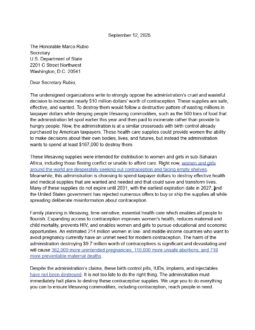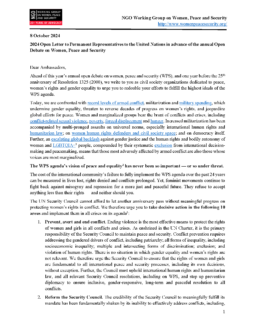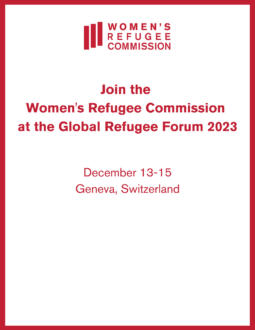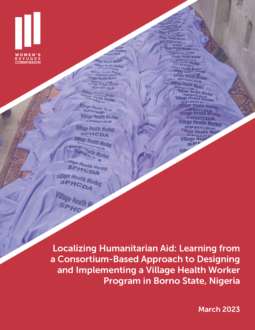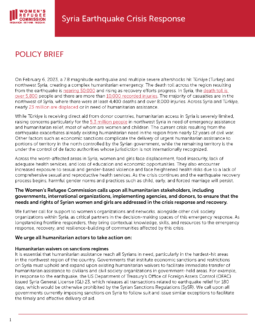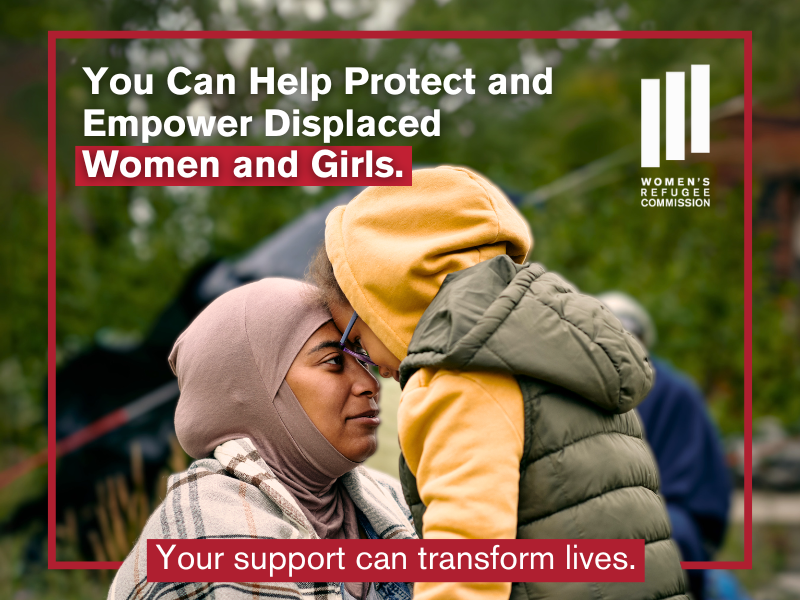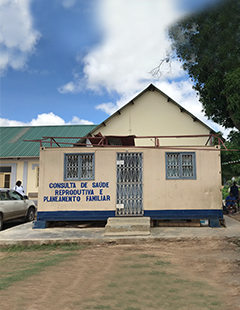
Recommendations to Strengthen the Provision of Contraceptive Services for People Affected by Crises
PublishedThe Women’s Refugee Commission completed a landscaping assessment from 2018–2020 to evaluate and build the evidence base on barriers, opportunities, and effective strategies to provide contraceptive services to people affected by crises. Despite some progress made toward making contraceptives available in humanitarian settings, decision-makers continue to underprioritize contraceptive services in humanitarian health funding and programming, even as humanitarian needs are climbing at an unprecedented pace. This inattention undercuts the efficacy of humanitarian assistance and does a significant disservice to crisis-affected individuals.
Based on the findings from the assessment, WRC is partnering with the Inter-Agency Working Group on Reproductive Health in Crises (IAWG) and FP2030 to develop targeted recommendations to four sets of key stakeholders: donors, governments, humanitarian agencies, and development agencies. The briefs will provide each of these groups of decision-makers with recommendations to advance access to contraceptive services for people affected by crises.
Learn more about WRC’s work on contraceptive services.
Photo: Reproductive health and family planning clinic within a rural hospital in Buzi, Mozambique. Credit: WRC/Katherine Gambir
Recommendations for humanitarian and development donors
Contraceptive services must be integrated into funding and programming, whether the donor typically funds humanitarian programs, development programs, or both. This is critical to ensuring preparedness for contraceptive access, continued services during an acute emergency, and longer-term sustainability. This brief provides recommendations to humanitarian and development donors on what you can do to improve access to contraceptive services for people affected by crises, and how to do it.
Recommendations for local and international development partners
Local and international development partners play a critical role in protecting access to contraceptive services when crises occur, even if they do not have a mandate to participate in humanitarian response. To ensure continuity of contraceptive services at all stages of development, crisis, fragility, and recovery, we call upon development partners to integrate crisis preparedness into their ongoing contraceptive programming and strengthen health systems for contraceptive service provision before and in the aftermath of crises. In addition to IAWG and FP2030, this brief is co-branded with MOMENTUM Integrated Health Resilience.
Recommendations for humanitarian response partners
Good quality, rights-based contraceptive services must be integrated into humanitarian programming, from preparedness to response to recovery. When humanitarian response partners do not provide contraceptive services during crises, women and girls lose access to this life-saving component of primary health care. This brief provides recommendations to humanitarian response partners to strengthen availability of and access to good quality contraceptive services, along with other critical sexual and reproductive health (SRH) services, from preparedness to acute emergency response to protracted response and recovery.
Recommendations for governments to maintain continuous family planning services during shocks and stressors
People need continuous access to family planning (FP) services as an essential component of SRH care to prevent unintended pregnancy. As stewards of their national health programs, governments must lead the way on advancing policies, programs, and financing that build resilient health systems and enable continuous access to health services across shocks and stressors. This brief provides recommendations for governments to improve preparedness to provide continuous FP services, build resilient health systems that can withstand and adapt to crises, and meet FP needs during crises and stable times alike. This brief is co-branded with IAWG, FP2030, USAID, MOMENTUM Integrated Health Resilience, and PROPEL Adapt.


